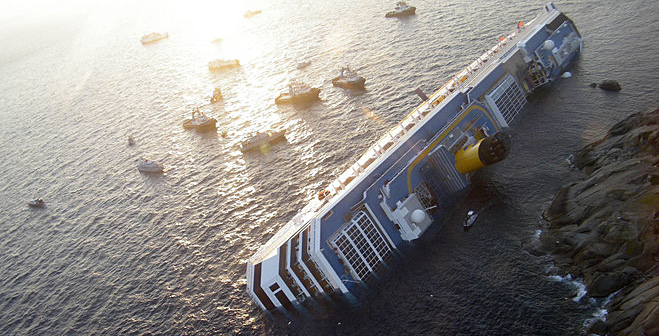Making sure your passengers and crew are safe while on board your ship is a big responsibility that shouldn’t be taken lightly. The seas can be unpredictable and conditions are often difficult to control.
Following recent accidents at sea such as the Concordia crash and the Thomson Cruise ship lifeboat incident where five crew members lost their lives, it’s worth revisiting important safety considerations.
You can avoid accidents easily by taking safety seriously and abiding by safety rules and regulations. Have a read through the following tips and make sure you bear them in mind on your next voyage.
Safe Navigation
Some people might be surprised that when it comes to safety, navigation is crucially important. Having the correct equipment and planning your route carefully can save lives. You need to have the latest navigational systems and use tried and tested techniques in order to avoid obstacles, bad weather and going too close to shore.
All ships must have an ECDIS, which is short for Electronic Chart Display and Information System. This helps you chart your course and plan different routes. It also helps with avoiding obstacles and identifying your current position. Navigation is also important when you need to call for help. Train your team on how to call for help and accurately describe your location to a search and rescue team.
Preventing Fires
Fires are an on-going safety risk on ships and vessels. They can put passengers, crew and even ports and harbours in danger. Fires are surprisingly easy to cause on ships because of water and wiring and the need to cook on board. Take extra care with gas cookers.
Make sure you have a fire safety procedure and your crew are trained to detect a fire quickly and distinguish it. There should also be a very clear evacuation plan for passengers to follow should the fire get out of control. This sounds like a very obvious point, but make sure everyone on board knows what to do in the event of a fire.
If you stay on board your ship overnight or for long periods of time then consider installing an on-board smoke alarm. Be vigilant when it comes to cooking and check for any potential fire hazards before you set off.
As well as gas and fires you must be well educated on gas risks. Ships are particularly dangerous places when it comes to gas leaks, because they are well contained. Many boaters die every year from carbon monoxide poisoning, so make sure you know the facts.
Ship Design & Maintenance
Vessels need to be check regularly to ensure they are in working order. Faulty ships and damaged parts can lead to unnecessary accidents. It is essential to carry out regular safety checks which involve tasks such as changing oil, checking lights and checking your ship is in good working condition. Check that your ship can easily be seen, especially in bad weather. You can also have your ship examined by safety specialist and get a certificate to prove your vessel is safe.
Crew Training
Make sure all crew are fully trained when it comes to manning your vessel, and they know the relevant safety procedures inside out. To be confident that they are capable of following procedure and know how to act make sure you run safety drills and test runs.
There are various different courses you can send your crew on depending on what type of vessel you are operating. Do extensive background checks to see whether crew members have the relevant qualifications and experience.
On-board Health
When there are lots of people contained in once place, health problems can spread quickly. Seasickness can also be a problem with passengers and crew, even if they have years of experience. There are lots of things you can take to prevent sea sickness so check people are aware of these before they get on board.
Take the weather conditions into consideration, depending on where in the world you are travelling. If you are planning on navigating through cold and icy conditions, ensure the crew are fully kitted out and you know how to spot things such as hypothermia. Alternatively if you are going to be exposed to hot weather then make sure you have plenty of sunscreen on board and everyone is drinking sufficient fluids.
If you have an outbreak of a contagious illness or virus then try and quarantine affected passengers as much as possible. It is not ideal but it is necessary. Learn how to spot the symptoms of illness such as Norovirus and flu.
This is simply an overview of some of the things you need to know to be safe at sea. The tips and advice mentioned merely scratch the surface of marine safety. Don’t take risks, arm yourself with as much information as possible so that you can prevent accidents, keep your crew safe on board and abide by relevant rules and regulations.
Neil Maycock writes articles for ECDIS Info.











I love long boat cruises in Thailand, very unsafe but has much character!